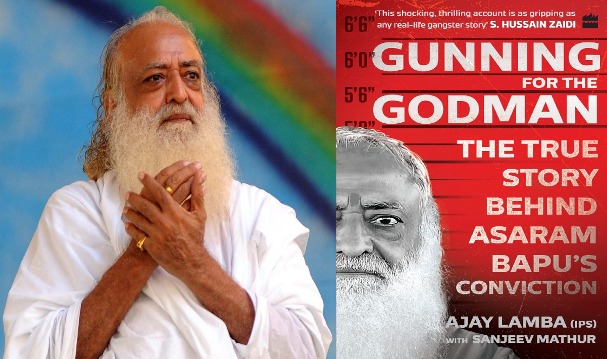
A Delhi Court recently denied an interim injunction on the publishing and sale of a HarperCollins book, “Gunning for the Godman: The Real Story Behind Asaram Bapu’s Conviction.”
The judgment was delivered by a single bench of Judge Sudhanshu Kaushik in a complaint brought by the plaintiff, Sanchita Gupta in September 2020, along with a motion for injunction on the grounds that the book included defamatory remarks about her.
The single bench noted that the Delhi High Court had passed detailed directions to balance the rights of the parties during the pendency of the suit in an order dated September 22, 2020, and that the order was issued on merits after hearing all of the parties and dealing with all of their respective contentions.
“It would be judicial impropriety to re-appreciate these aspects at this stage for considering whether an injunction needs to be granted during the pendency of the suit,” the order noted.
The book revolves around godman Asaram Bapu, who was convicted in 2018 by a special POCSO court of sexually abusing a minor girl. The plaintiff was the warden of an ashram managed by the godman and was likewise convicted of offences punishable under the Indian Criminal Code.
She had appealed her conviction, and the Rajasthan High Court stayed it while it decided the case.
As a result, she filed this claim against the book’s publisher, stating that it included false and defamatory allegations that would harm her reputation.
She claimed that the book and articles published by defendants (Scroll Media) represented her negatively and harmed her reputation in the eyes of her acquaintances and the general public.
On September 4, 2020, an ex-parte temporary injunction was obtained in favour of the plaintiff.
Nevertheless, HarperCollins filed an appeal against the injunction in the Delhi High Court, and the interim decision was overturned, allowing HarperCollins to publish the book with a disclaimer.
Judge Kaushik highlighted the rationale underlying the theory of merger, noting that at any given moment, there cannot be more than one decree or active order covering the same subject area.
“It is the superior court’s judgement or order that is final and binding… The merging theory applies to both decisions and orders issued by the higher forum. The lower court’s order combines with the order of the higher courts, regardless of whether the order has been changed, reserved, or upheld by the superior forum “the bench stated.
“As a result, the application under Order XXXIX Rule 1 & 2 of the CPC is disposed of in terms of the judgement dated 22.09.2020 made by the High Court of Delhi,” the court ruled.
It was noted, however, that the remarks made in the current decision are only for the purpose of deciding whether an injunction should be issued during the pendency of the complaint.
The observations shall have no bearing on the outcome of the trial, the order added.




